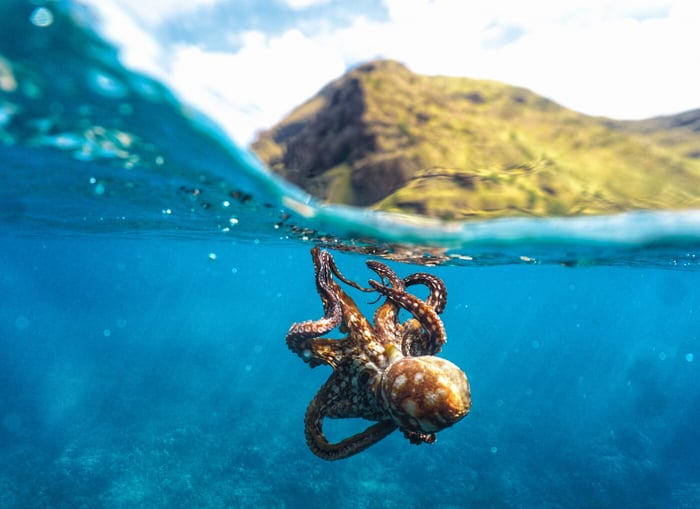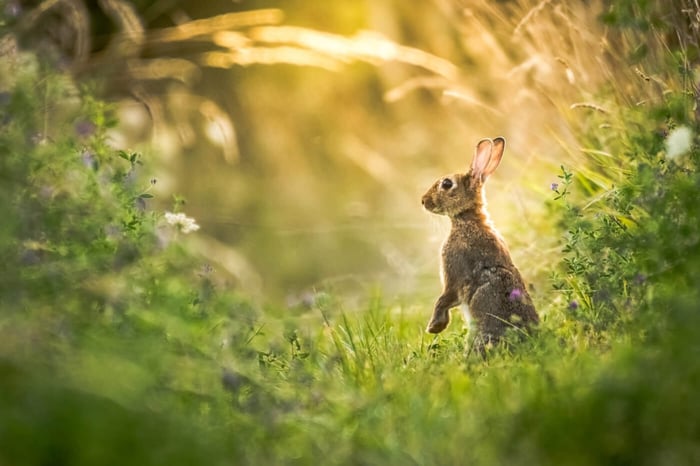The octopus is one of the greatest shapeshifters of the sea. As a master of disguise, the octopus uses self-camouflage to blend into its surroundings and to mimic or elude its prey.
This creature is highly intelligent, capable of using tools, scheming, and strategizing. When combined with its unpredictable appearance, the octopus has many unique advantages over its neighbors.
But, let’s not forget—just like the octopus, we too can adapt to a number of scenarios.
Not surprisingly, the master of disguise is also a skilled escape artist. The octopus expands, yields, and transforms its body on command, demonstrating again and again that reality is stranger, much more complex than we often realize.
Edgar Allen Poe said that that people should believe only half of what they see.
The octopus says, believe even less.
Let’s think about it:
Humans respond to color and light. We hear sound, we feel vibrations, and we are constantly establishing plots, making plans, and imagining new ideas.
But color is a frequency. Light is a frequency. Sound is a frequency. Thoughts are frequencies.
Therefore, my dear, you are a frequency.
Although the octopus is blessed with stellar sight that assists its transformations, it’s also highly intuitive. Like other underwater beings, the octopus understands that emotions influence the unconscious patterning of the psyche. This means that our emotional responses (whether they be joyous, angry, or sorrowful) help tune the soul’s frequency.
Working with any sea creature is a powerful way to refine our energetic blueprint and connect more deeply with our cycles, the moon, and the element of water.
Next time the octopus appears, try asking yourself:
How does swimming, floating, or submerging myself in a body of water influence my energy levels, train of thought, and overall mood?
Do ‘good ideas’ often come to me in the shower or while bathing?
What is my relationship to water, tides, and the unseen realities that are very much present (even if I don’t always acknowledge them) in my day-to-day life?
The octopus requires that we keep asking questions, but also that we surrender to not knowing.
If you think this sounds a bit hypocritical, you’re right.
But maybe that’s why the octopus often shows up when we’re feeling stuck or vulnerable. Or when we’re floundering, trapped inside a hypothetical cage with nothing more than a keyhole to gaze through.
That’s not to say we should panic or lose sight of what we desire when the octopus arrives.
However, when this shapeshifter emerges from its lair, deep within a watery universe that humans long to know, let’s hope we’re ready to evolve, to progress, and to reshape our version of reality.
That is, so long as we don’t rely on the octopus to do everything for us.
Because this ancient creature, in both its physical and spiritual form, is a guide, not a savior. The octopus will not hand us a key to our cage. Instead, it shows us that with a bit of strategy, flexibility, and imagination, we might become the key.
And depending on our dreams, habits, talents, and passions, that key, that solution to our woes, is concealed somewhere within the body.
For students or scholars who believe that knowledge is power, the mind holds the key. Healers might turn to the heart, and athletes (or anyone who craves movement) to the legs and feet. Artists create possibility by flexing their hands, and those who sing, lecture, and philosophize, will illuminate truths by exercising their voice and inner sight.
The octopus reminds us that we’re blessed with an array of abilities unlike those of our neighbors.
However mystifying they may be, those are our keys.
Ways to Connect with the Octopus:
- Create a sacred space near water to perform a ritual dedicated to transformation, amplifying intuition, or regeneration. Consider a spot near the seashore, a lake’s edge, a pond, or a shelf near your bathtub.
- Dedicate a corner of your altar to the element of water—incorporate items like ammonite fossils, seashells, sand, or a bowl of saltwater or freshwater.
- Question the truths you’re told and the ones you tell yourself.
- Donate time, money, or energy to a cause that protects marine life or freshwater ecosystems.
- Practice flexibility in the face of adversity.









